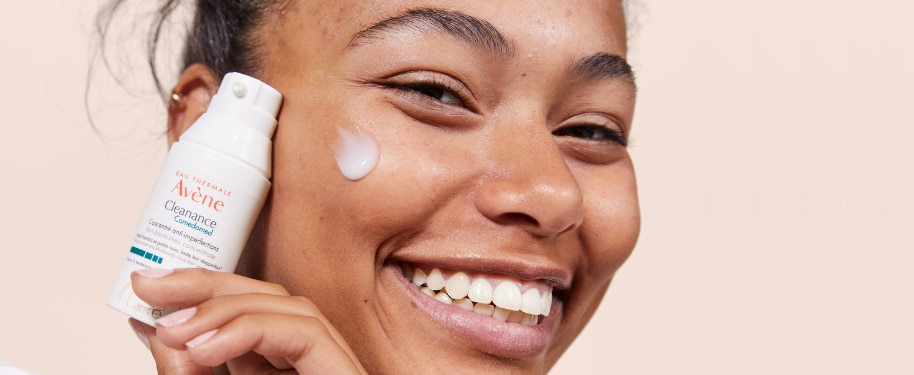Tips for oily, acne-prone skin
Understanding oily, acne prone skin with specialist dermatologist, Dr Tarryn Jacobs.
What are the causes and symptoms of acne-prone skin? What skincare routine is best to manage this? Do lifestyle factors play a role?
The answers to the questions you've been dying to ask.... We have partnered with specialist dermatologist, Dr Tarryn Jacobs to bring you expert tips to manage breakouts.
What are the causes and symptoms of acne-prone skin?
Acne is a condition of the hair follicle and its associated oil gland which becomes blocked and inflamed which is driven by a several factors:
Our skin is constantly shedding dead skin cells, and the trouble begins when there is a slowing of shedding process and increased skin cell stickiness, which blocks pores.
At the same time, there is an increase in oil production – this is mediated by hormones which leads to the occlusion of pores.
An overgrowth of a bacteria (called p.acnes) which contributes to inflammation and pimples.
Acne can appear on the skin a number of forms:
Blackheads and whiteheads appear as small bumps on the skin and these are known as comedones. If acne becomes inflamed then it can appear as red bumps, pustules, or deeper bumps called nodules or cysts.
What many people don’t know, is that for every visible acne lesion on the skin, there are many microcomedones underneath the skin that are not visible to the naked eye. This actually is the first stage of acne.
What skincare routine is best to manage oily, acne-prone skin?
The most important thing is to cleanse your skin morning and evening. The purpose of cleansing is to remove dirt, sebum and bacteria. Be careful not to over-cleanse, as it can lead to rebound oiliness. There is often a myth that oily acne-prone skin does not need a moisturizer. The truth is, there is a difference between oil content and the water content of your skin - so even oily, acne-prone skin needs hydration from using a moisturizer. The next thing you need is a good sunscreen of minimum SPF30. It is an important part in any skincare routine and it also helps prevent those dark marks left behind from spots from darkening.
Getting ahead of acne means that you need to prevent new spots from forming and that means keeping pores unclogged. Recently, a new plant-derived ingredient called, ComedoclastinTM has been shown in studies to prevent the transformation of the invisble microcomedones. It has also been shown to help to limit the appearance of new acne lesions.
What lifestyle tips are recommended to help control breakouts?
Diet
I am often asked about the role of diet in acne, which has been controversial over the years. There is growing research showing that foods with a high glycaemic index and possibly dairy may exacerbate acne in a minority of people. The way I would translate this, however, is not to cut out sugar altogether but be mindful of consumption. This isn’t just good for your skin, but also for your general health as well.
Make-up
When it comes to make-up, there’s no need to avoid it if you have acne. However, you should choose your make-up products carefully and opt for options that are oil-free, non-comedogenic (meaning it won’t block pores) and light in texture. Always remember to wash your brushes and applicators every week to prevent the transfer of bacteria to your skin, because this can cause new breakouts.
Manage your stress
The amount of oil produced in the skin can be directly influenced by certain stress hormones. Stress relief is not easy, and you need to find out what works for you individually.
Always wash your face post-workout
Washing your face post-workout will help remove that accumulation of sweat, oil and dirt that can promote breakouts. I also recommend going make-up free when working out.
Don’t touch your face throughout the day
Touching your face can spread dirt, oil and bacteria from your hands to your face. Only touch your face when you’re cleansing, moisturizing, or applying sunscreen or make-up, and make sure your hands are clean first.
Also, avoid the temptation to pop or squeeze pimples, as this can lead to secondary infection and scarring.

Information courtesy of:
Dr Tarryn Jacobs
Specialist Dermatologist
www.noviskin.co.za/dr-tarryn-jacobs/
Instagram: @drtarrynjacobs
